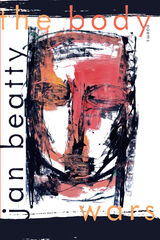
Yellow Sky
The summer that I had nowhere to live:
the sky was yellow everywhere.
The cars of other people had their own private shine.
I walked slowly.
Several birds re-visited the backyards of strangers,
I was free
singing the song of the last thing I didn’t say to you.
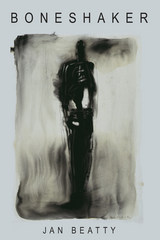

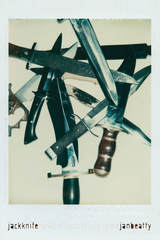
The new poems leap imagistically from the known world to the purely imagined, as in the voice in "Abortion with Gun Barrel": "I am the counselor,/there are cracks in the barrel of the gun/there is aiming/shots of sorrow—/ shots of light.” Commitment to a rabid feminist voice continues, but arrival has a new ring to it, with beginnings rescripted: “I am a bastard./I walk around in this body of mine."
Beatty’s fascination with the highway and the breakout West jackknifes at the crossroads of the brutal and the white plains of loss—the body torn down and resurrected in the twenty first century.
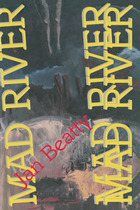
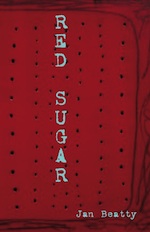
“Red Sugar is tantalizing and forbidden, but it is no peepshow. The poems are raw, brash, and full of pluck, yet there is tenderness and honest emotion at the core. Jan Beatty reminds us that there is 'nothing / between us and death but one inch.' She takes us to the edge of being and shows us our own quick mortal souls. Yes, there's rock music and prison sex-but do not think for a moment that this book is merely licentious. Beatty casts a broad canopy over human desire, and within the scope of experience, she finds, too, that we are innocent and sublime beings. A rich, rare treat, this Red Sugar.” —D. A. Powell
"Tthe boldly sexual first person narratives in Red Sugar are absolutely riveting, artfully fleshed-out poems which generate fear for the character's safety." —ForeWord Magazine
"This electric, nerve-jangling collection revels in and sometimes rails against the glorious mess of inhabiting a body. The poems, in this, her third collection, are often raw, and full of sex, drugs and rock n' roll, but they're also shockingly soft and tender." --Pittsburgh Magazine
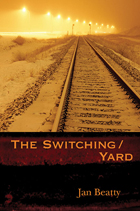
We see the open truck cab, the farm workers on the corner waiting for pick-up; we see the speaker returning west to find the long-abandoned story of the birthfather. There is no stable landscape here except the horizontal action of moving through. Landscape becomes story. In this extended tale of the idea of family, we find stand-ins for the father in the form of a hit man, Jim Morrison, and ultimately the unyielding road takes the place of the body. The Switching/Yard is at once the horizontal world of the birth table where babies are switched, the complex yard of the body where gender routinely shifts and switches, and the actual switching yard of the trains that run the inevitable tracks of this book.
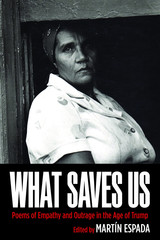
This is an anthology of poems in the Age of Trump—and much more than Trump. These are poems that either embody or express a sense of empathy or outrage, both prior to and following his election, since it is empathy the president lacks and outrage he provokes.
There is an extraordinary diversity of voices here. The ninety-three poets featured include Elizabeth Alexander, Julia Alvarez, Richard Blanco, Carolyn Forché, Aracelis Girmay, Donald Hall, Juan Felipe Herrera, Yusef Komunyakaa, Naomi Shihab Nye, Marge Piercy, Robert Pinsky, Danez Smith, Patricia Smith, Brian Turner, Ocean Vuong, Bruce Weigl, and Eleanor Wilner. They speak of persecuted and scapegoated immigrants. They bear witness to violence: police brutality against African Americans, mass shootings in a school or synagogue, the rage inflicted on women everywhere. They testify to poverty: the waitress surviving on leftovers at the restaurant, the battles of a teacher in a shelter for homeless mothers, the emergency-room doctor listening to the heartbeats of his patients. There are voices of labor, in the factory and the fields. There are prophetic voices, imploring us to imagine the world we will leave behind in ruins lest we speak and act.
However, this is not merely a collection of grievances. The poets build bridges. One poet steps up to translate in Arabic at the airport; another walks through the city and sees her immigrant past in the immigrant present; another declaims a musical manifesto after the hurricane that devastated his island; another evokes a demonstration in the street, shouting in an ecstasy of defiance. The poets take back the language, resisting the demagogic corruption of words themselves. They assert our common humanity in the face of dehumanization.
READERS
Browse our collection.
PUBLISHERS
See BiblioVault's publisher services.
STUDENT SERVICES
Files for college accessibility offices.
UChicago Accessibility Resources
home | accessibility | search | about | contact us
BiblioVault ® 2001 - 2024
The University of Chicago Press









